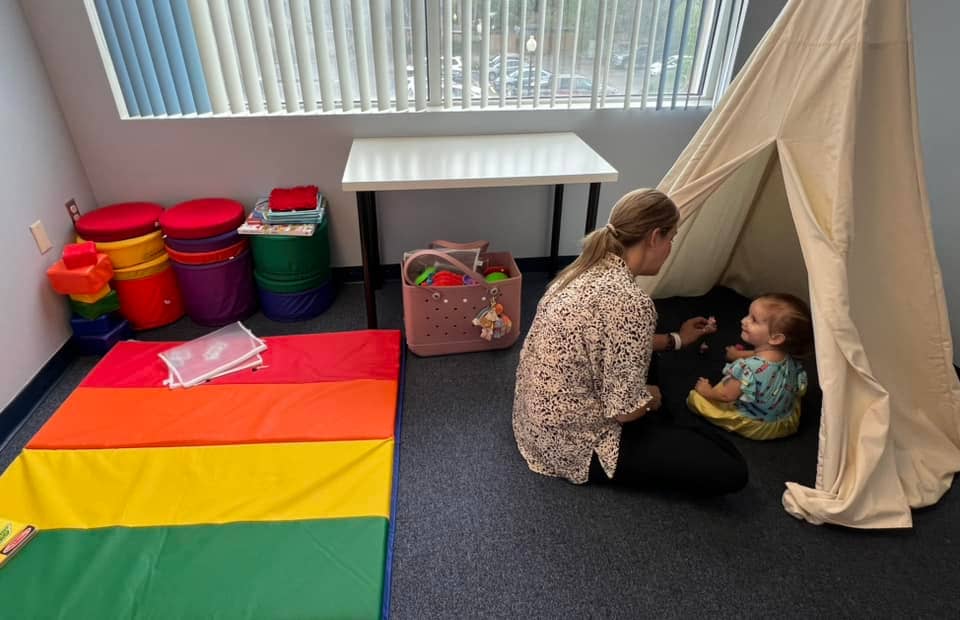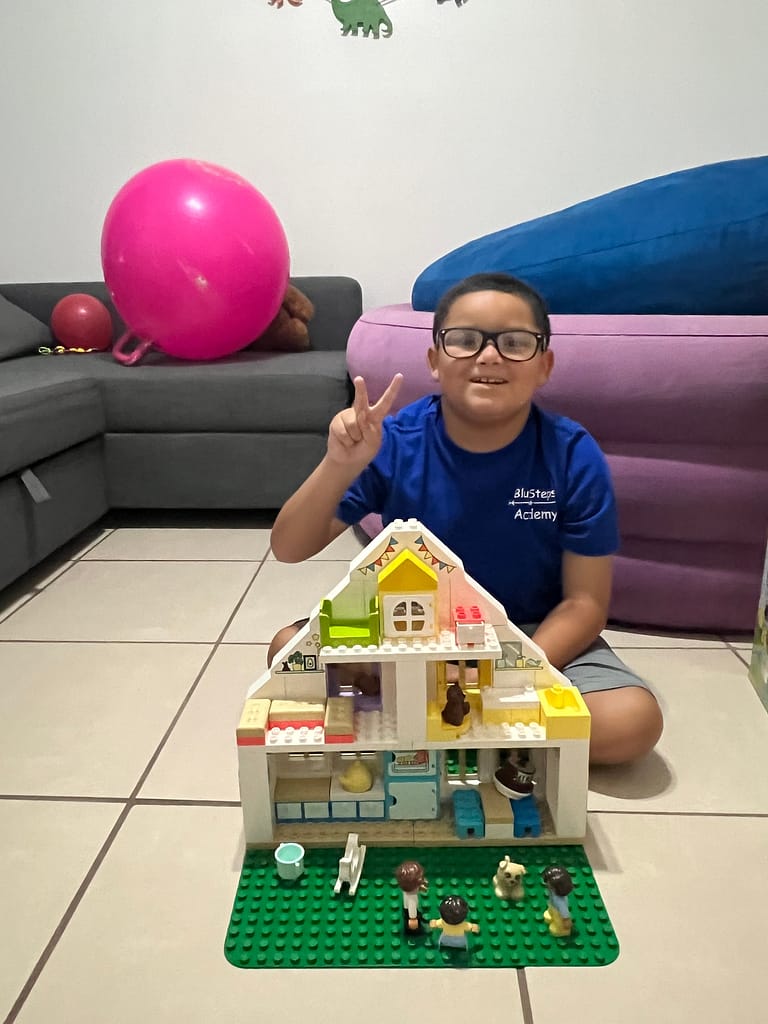Parental involvement in therapy is important for maximizing the effectiveness of therapy and ensuring long-term success for children.

Consistency and Reinforcement
When parents are involved in therapy, they can help reinforce the strategies and goals being worked on, supporting their child in applying what they’ve learned to everyday situations. This involvement allows for better generalization of skills, ensuring that progress made in therapy sessions carries over into real-life settings. Additionally, regular practice at home can significantly accelerate skill development, providing more opportunities for children to refine and solidify their progress.

Understanding of the Child’s Needs
Active involvement in therapy allows parents to gain valuable insight into their child’s unique strengths, challenges, and needs. This deeper understanding helps parents better support their child’s growth and progress. By being directly engaged, parents are also empowered to make more informed decisions about their child’s care, ensuring they advocate effectively for the appropriate resources and support to meet their child’s specific needs.

Parent-Child Relationship
When parents collaborate in therapy sessions, it helps build trust and strengthens the overall parent-child relationship. This shared experience fosters a deeper emotional connection, as parents become more attuned to their child’s feelings, behaviors, and needs. By being more involved, parents can offer more targeted emotional support, helping their child feel understood and supported during their therapy journey.

Better Communication Between Therapists and Parents
Effective communication between therapists and parents enables therapists to adjust interventions based on the insights parents offer, while parents receive tailored strategies to support therapy at home. This collaboration ensures that therapy goals are aligned with both the child’s needs and the family’s values, promoting continuity of care and providing a consistent support system in both therapy sessions and daily life.

Improved Outcomes
Parental involvement in therapy plays a crucial role in the child’s overall development, focusing not only on therapeutic goals but also on social, emotional, and behavioral growth. When parents are actively engaged, children are more motivated to participate in therapy and strive toward their goals. The encouragement and support from parents foster a positive environment, boosting the child’s engagement and promoting greater progress in therapy.

Parents learn skills too!
Parental involvement in therapy helps parents develop valuable skills for managing challenges, which boosts their confidence in supporting their child’s progress. As they learn effective techniques and strategies, parents feel more empowered and capable in their role. Additionally, knowing how to make a positive impact on their child’s development can reduce stress and alleviate feelings of helplessness or frustration, creating a sense of control and reassurance for parents.

Tailored Interventions
When parents are actively involved in therapy, therapists can create interventions that are tailored to fit the family’s routines, culture, and values. This individualized support ensures that therapy is relevant and aligned with the child’s home environment. Parents also play a key role in adapting therapeutic strategies, helping to apply them effectively in the child’s daily life, making the interventions more practical and impactful.

Long-Term Success
Parental involvement is crucial for ensuring that the progress made during therapy is maintained. By staying engaged, parents help reinforce the skills learned in therapy and create consistency at home. Additionally, parents are better able to identify and address any challenges early, preventing potential setbacks and supporting continued growth, which contributes to long-term success in the child’s development.
Love & Co. Therapeutic Interventions
referrals@loveandcompanytherapies.com
☎ 1 (941) 557-3881
☎ 1 (941) 264-8641
Follow us on Facebook and Instagram!
If you like our resources, please like and share our pages!
Leave a Reply